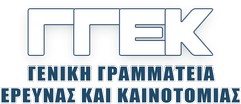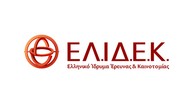

Nafsika Vassilopoulou,
PhD in Byzantine History, NKUA
Postdoctoral Research Fellow,
Hellenic Foundation for Research and Innovation / University of the Aegean
Nafsika Vassilopoulou was born in Athens in 1983. She holds a PhD in Byzantine history from the National and Kapodistrian University of Athens, where she also completed her undergraduate and postgraduate studies. Her research interests are focused on the late Byzantine period, diplomacy, war, identity issues, religious conflict and relations between the Byzantine empire, the West and the Ottomans. She has taught as a postdoctoral fellow at the University of Crete and the Ionian University, and was a research associate in major research programmes, including the DARIAH-GR Digital Humanities project. She has several publications and participated in various international conferences. Besides Greek, she speaks English, German, Turkish and Italian.
She is currently a postdoctoral research fellow at the University of the Aegean, at the project “The World of the Palaiologan Romance. Representations of Self and Society in the Greek Narrative works of the Late Medieval period (thirteenth – fifteenth centuries). A Multidisciplinary Approach to Identity, Otherness, Gender and Ideology” funded by the Hellenic Foundation for Research and Innovation. Her contribution in the programme concerns the comparison of the romances to the historiography of the Palaiologan era in terms of identity, society and gender.
Selected publications:
- Byzantine imperial match-making in the Palaeologan era (1258-1453): political approaches (PhD Dissertation), Athens 2015 (in Greek with english summary), [http://www.didaktorika.gr//eadd/handle/10442/37048]
- ΟὐγὰρδὴμετριώτεροιτῶνἙσπερίωνἐχθρῶνοἱπαρὰτῆςἈνατολῆςὁρμώμενοιΤοῦρκοι …: Theodore I Palaeologus and the Peloponnese in the late fourteenth century Eoa kai Esperia, v. 8 (2012), p. 325-352 (in Greek with english summary), [http://dx.doi.org/10.12681/eoaesperia.16]
- The opposition of the ‘aristocracy’ in the Union of the Churches in the Palaeologan period (in Greek), in Proceedings of the 2nd Conference of Young Researchers «Religion and Politics», ed. Anna-Susanna Tsokanis, Diachronia, Supplement 3 (2016), p. 193-206
- (with Marilia Lykaki) Mercenaries of Byzantium: Their role during the transition from the Middle to the Late Byzantine era (in Greek), in Α. Kolia-Dermitzaki, V. Seirinidou, Sp. Ploumidis (ed.), Μ. Lykaki (ed. colaboration.), Histories of War in South-Eastern Europe: An Approach in the Longue Durée. A centenary since the Balkan Wars of 1912-13. International Scientific Conference of the Department of History and Archaeology (7-9 November 2013), Athens 2018, 160-175
- ‘All men must die’: violence and politics in the early years of Michael VIII Palaeologos’s reign. The assassination of the Mouzalones brothers (1258), Violence and Politics: Ideologies, Identities, Representations, ed. by Antonios Ampoutis, Marios Dimitriadis, Sakis Dimitriadis, Theodora Konstantellou, Maria Mamali and Vangelis Sarafis, Cambridge Scholars Publishing 2018, 409-425
- Authors, warriors, Zealots: the cultural landscape of the Palaeologan civil strifes, Proceedings of the Medieval Culture and War Conference. Transformation, Renovation, Continuity (in print)
- The Greek magnates of the Peloponnese and the Palaeologi: the episode of 1415, Eoa kai Esperia, v.10 (forthcoming)
- Sovereignty and female authority in the Palaiologan romances. Consistencies and inconsistencies with historiographical texts (forthcoming)
- Ethnic identities and political terminology in the byzantine texts of the 13th century: Historiography vs Romance, East vs West? (forthcoming)
Konstantinos Karatolios is a PhD candidate in Byzantine History at the University of Crete. He holds a postgraduate degree in Byzantine Studies at the Department of History and Archaeology at the University of Crete (with a scholarship from the State Scholarships Foundation of Greece). He is also a graduate of the Department of Primary Education at the University of Crete and the Department of Social Anthropology and History at the University of the Aegean.
He has written three books so far, he has taken part in three collective volumes and published many articles on Byzantine History. His work has been translated in English, French, Spanish, Portuguese and Italian.
His role in the research program “The World of the Palaiologian Romance. Representations of Self and Society in the Greek Narrative works of the Late Medieval period (thirteenth-fifteenth centuries). A Multidisciplinary Approach to Identity, Otherness, Gender, and Ideology” was mainly tο compare Palaiologan romances with contemporary rhetorical texts.
Selected Bibliography/ Ενδεικτική Βιβλιογραφία
Books/ Βιβλία:
Το Υγρόν Πυρ και η Συμβολή του στη Βυζαντινή Ισχύ, Athens, 1st publication 2013, 2nd publication 2014. Also published in: English, Greek Fire and its Contribution to Byzantine Might, 2014, Portuguese, O Fogo Grego e a sua contribuição para o poderio Bizantino, 2017, Spanish, El Fuego Griego y su contribución al poder bizantino, 2017, French, Le feu grégeois et sa contribution à la puissance byzantine: présentation d’une arme terrifiante, 2018, Italian, Il Fuoco Greco e il suo contributo alla potenza bizantina: Un’introduzione a un’arma terrificante, 2019.
Chapters in books/ Κεφάλαια σε Βιβλία:
“From a peacemaker to a warrior: Changes in the imperial education as illustrated in the eleventh century Mirrors of Princes” in Theotokis G., Meško M. (ed.), War in 11th century Byzantium, Routledge 2021, pp. 98- 108.
“Travelling as a Hostage: The Testimony of Kaminiates’s Capture of Thessalonike”
in Stojkovski B. (ed.), Voyages and Travel Accounts in Historiography and Literature, vol. 1. Voyages and Travelogues from Antiquity to the Late Middle Ages, Trivent 2020, pp. 19- 32.
Articles in Journals/Άρθρα σε περιοδικά:
“Social stability and mobility through marriage in Metochites’ On Education and in Velthandros and Chrysantza”. Rosetta 26 (2021), (under publication).
“Greek Fire, Reconsidering a terrifying Byzantine weapon”, Mediterranean Chronicle 8, (2018), pp. 37- 50.
Conference Proceedings/Πρακτικά Συνεδρίων:
«Η Εκπαίδευση του Βασιλείου Α΄ μετά από την Άνοδό του στον Βυζαντινό Θρόνο» [The Education of Basil I after he Became Emperor], 6th International Conference for the Promotion of Educational Innovation, 16- 18 October 2020, Conference Proceedings, Larissa 2021, volume II, pp. 564- 570.
«Η Παιδεία του Βασιλείου Α΄ του Μακεδόνα. Μια Διεπιστημονική Προσέγγιση» [The Education of Basil I. An Interdisciplinary Approach], I.A.K.E, 5th International Scientific Conference, Conference Proceedings, Heraklion 5- 7 April 2019, volume II, Heraklion 2019, pp. 236- 242.
«Ευεργεσίες και Φιλανθρωπία στην Αυτοκρατορική Ιδεολογία της Μέσης Βυζαντινής Περιόδου. Οι Συμβουλές του Πατριάρχη Φωτίου στον Μαθητή του Λέοντα ΣΤ΄ και στον Ηγεμόνα Βόρι- Μιχαήλ της Βουλγαρίας», 4ο Διεθνές Επιστημονικό Συνέδριο., Ηράκλειο 2018, τόμος β΄, σελ.149- 154 [Beneficiaries and Charity Benefits as Seen in the Imperial Ideology of the Middle Byzantine Period. The Advice of Patriarch Photios to his Student Leo VI and to the King Boris-Michael of Bulgaria] I.A.K.E., 4th International Scientific Conference, Conference Proceedings, Heraklion 27- 29 April 2018, volume II, Heraklion 2018, pp. 149- 154.
«Η Πολιτική Παιδεία των Πριγκίπων της Μέσης Βυζαντινής Περιόδου. Οι Συμβουλές των Δασκάλων τους και οι Στοχασμοί τους πάνω στα Πολιτεύματα όπως Καταγράφονται στους Βασιλικούς Ανδριάντες». [Political Education of the Princes of the Middle Byzantine Period. The Advice of their Teachers and their Thoughts on the Systems of Government as Seen in the Mirrors for Princes], 3rd International Scientific Conference, Conference Proceedings, Heraklion 5- 7 May 2017, volume I, Heraklion 2017, pp. 147- 155.
Dora Konstantellou studied Byzantine Art and Archaeology at the National and Kapodistrian University of Athens (MA, PhD), at the Pantheon-Sorbonne University-Paris 1 (Erasmus Exchange Programme). Her PhD thesis subject: “A Painting Workshop in the Countryside of Naxos (end of the 13th c.- beginning of the 14th c.): Patronage and Artistic Creation), reconstructed, both artistically and historically and tried to contextualize the activity of a local painting “workshop”. At the same time the “stories” of some of its painters and clients in the late medieval Naxos were thoroughly explored by the epigraphic and related evidence. During her studies she received several grants and fellowships, including the Mary Jaharis Center Dissertation Grant and the Titos Papamastorakis Dissertation Grant for unpublished theses.
She has participated in excavation projects that were carried out by the UoA on the island of Kos and the Sinai Peninsula and has worked as a research associate in some major research programmes. This academic year (2020-2121) she taught Byzantine and Post-Byzantine Art and Archaeology in the School of Tour Guides in Athens. She is member of the Christian Archaeological Society and the Greek Committee of Byzantine Studies. The areas of scientific research include the lives and conditions of work of the byzantine painters, the cult of saints, the role of the texts and of scripture in the medieval visual arts, the mirroring of devotional/social self through patronage, and the agency of objects (and materialism) in the reconstruction of identity and subjectivity during the Late Byzantine period.
In this research project she pursues a materialistic analysis of the Palaiologan Romances. She has recorded the objects in several categories, and has tried to explore the multidimensional meaning and role that these objects and their materials acquired within this fictional world. Another facet of this study investigates the moments and the contexts of their relation with the contemporary material culture.
Editing:
- Ampoutis, M. Dimitriadis, S. Dimitriadis, Th. Konstantellou, M. Mamali, V. Sarafis (eds),
Violence and Politics: Ideologies, Identities, Representations, Newcastle, Cambridge
Scholars Publishing, 2018
Articles in journals and conference proceedings:
Μ. Panayotidou-Kesisoglou Τ. Konstantellou, “Byzantine Wall Paintings of Protothronos at Chalki, Naxos. Images, function and Historical Context (10th -11th c. phases)”, Naxos and The Byzantine Aegean, J. Crow, D. Hill (eds.) [Norwegian Institute at Athens, vol. 7] Athens 2018, 257–282.
- Konstantellou, “Saint John The Baptist Rigodioktes. A Holy Healer of Fevers in the Church of the Panaghia at Archatos, Naxos (1285)”, ΔΧΑΕ 41 (2020), 173-196.
- Konstantellou, “The funerary representation of a lady in the church of Agioi Anargyroi outside Kato Sagri in Naxos (first half of the 13th century?)», Art and Archaeology in Byzantium and beyond. Essays in honor of Professors Sophia Kalopissi-Verti and Maria Panayotidi-Kesisoglou, D. Mourelatos (ed.), Oxford 2021, 43-54 (υπό έκδοση)
Δ. Κωνσταντέλλου, «Άγιος Γεώργιος ο Διασορίτης: μερικές σκέψεις για την ιστορία και τη χρήση
μιας προσωνυμίας στη Νάξο», Πρακτικά του ΣΤ΄ Πανελλήνιου Επιστημονικού Συνεδρίου «Η Νάξος
δια μέσου των αιώνων» (Δαμαριώνας Νάξου, 30 Αυγούστου-2 Σεπτεμβρίου 2018), Νάξος 2021,
345-360 (υπό έκδοση)